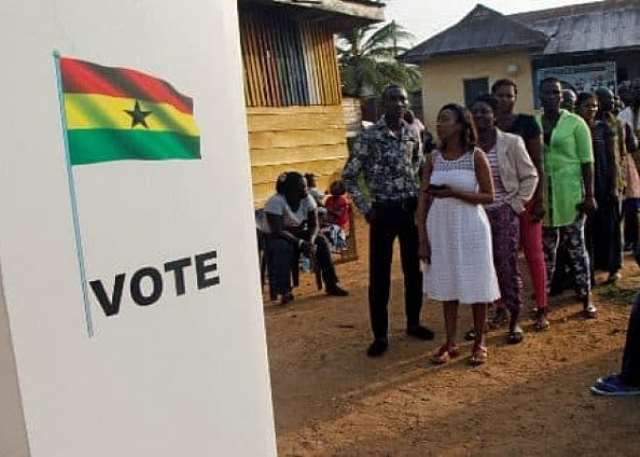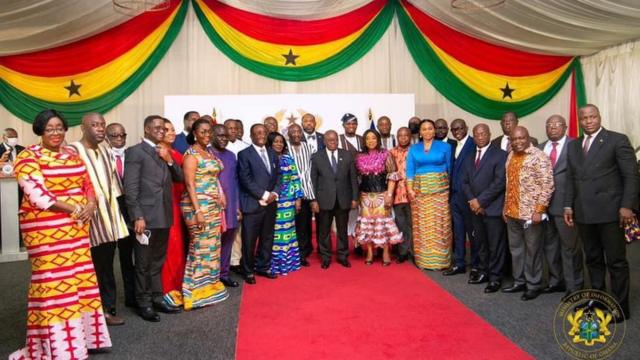Some of us knew and have argued that this contract, especially the upstream petroleum component, was a non-starter in the first place and would have been surprised if KPMG had made any serious positive findings.
Here's a summary of the White Paper from the President:
(A) Legal and Regulatory Issues
- No technical needs assessment was done before the engagement of SML, although this was not a legal requirement before engaging SML.
- PPA did not grant initial single-source procurement, so GRA used the backdoor of engaging SML in 2018 through West Blue which had an existing contract providing services at the Tema Port. This was regularised in 2020.
- The contracts did not receive parliamentary approval. Under section 33 of the Public Financial Management Act, 2016 (Act 921) (“PFMA”), such multi-year contracts must have ministerial and parliamentary approval.
- There is no evidence that the 2018 and 2019 contracts (transaction audit services, external price verification, and downstream petroleum audits) were submitted to the GRA Board for discussion and approval, contrary to the GRA Act. The Board, however, approved the 2023 contract covering the auditing of the upstream petroleum and minerals sectors.
(B) Technical Issues
Four levels of services were offered by SML:
- transaction auditing,
- external price verification,
- downstream petroleum audit, and
- upstream petroleum and minerals audit.
Transaction Audit Services
SML partially delivered according to the service requirements. GRA may not have obtained all the expected benefits from the service. Comment: What services did they deliver? How were these values assessed?
External Price Verification
SML partially delivered on the service requirements. GRA may not have obtained all the expected benefits from the service. Comment: What services did they deliver? How were these values assessed?
Downstream Petroleum Audit
There was an incremental volume of 1.7 billion litres and an incremental tax revenue of GHS 2.45 billion for the period under review. Other qualitative benefits included a 24/7 electronic real-time monitoring of the outflow and partial monitoring of inflows of petroleum products at depots, as well as six levels of reconciliation. Comment: Yes, revenue increased, and it is welcome, as, after all, it will build more schools and hospitals.
However, this incremental volume claim could be a red herring [NB: I have not read the full report]. Were all the co-founding factors, such as cyclicality in petroleum pricing, taken into account?
Seeing a jump in revenue cannot be wholly attributed to work SML did unless this was all fully argued out with scientifically in the KPMG report – for example, undertaking a simple statistical test of pre-and post-SML volume with a null hypothesis (H0) that SML contract did not deliver any value benefit and alternative (H1) that it did. This scientific approach silences any criticism.
Upstream Petroleum and Minerals Audit
SML has yet to implement the upstream petroleum audit and minerals audit services, and therefore, there was no assessment. Comment: I highly doubt the capacity of SML to do this kind of audit; again, it's easy to allege under-invoicing, but there's a high bar to prove it].
The upstream industry already has several flowmeters and revenue assurance mechanisms, so I am unsure what SML will do here. There may be something in the mining [bulk minerals space] regarding transfer pricing, but then again, proving it requires expertise that I honestly don't think SML has. Other companies are better suited to this. I think the focus of the work in the upstream oil industry should shift from revenue to a proper cost audit, as that is where Ghana is losing revenue. Again, I don't think SML is the right company to do this work.
(C) Way Forward
- The Government, acting through MoF and GRA, may terminate the contract with or without cause upon giving 120 days written notice before the effective date of termination stated in the Termination Notice.
- In the event of termination without cause, the Government becomes liable to pay SML a return on investment equivalent to the fair value of SML's investment in the respective contract. SML claims this amounts to $177.5 million but did not provide supporting documents or relevant information to verify this.
- Renegotiate the price levels, including shifting from a variable to a fixed fee structure for the downstream services while potentially cancelling the others, as existing mechanisms exist to address that.









